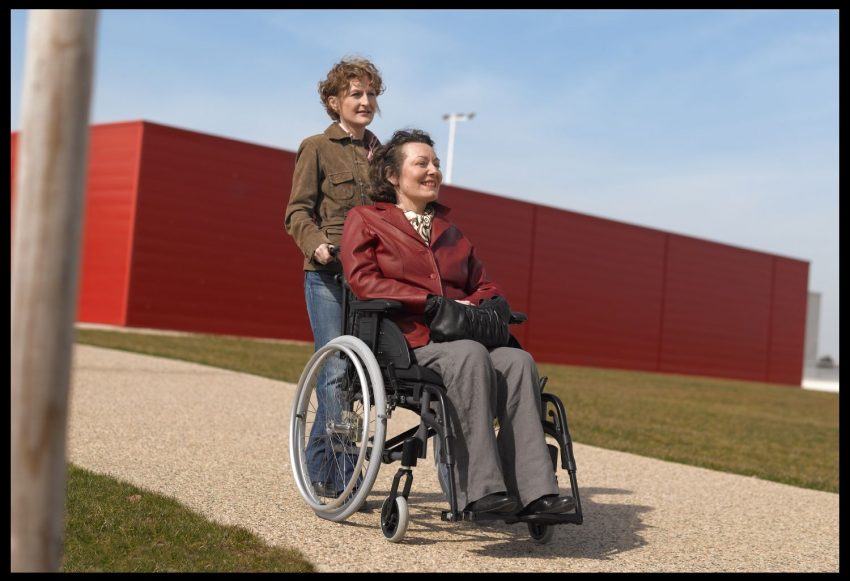Caregivers: What To Expect When Your Loved One Is Coping With An SCI

After sustaining a spinal cord injury, your loved one will go through a lot of different emotions. This kind of injury is life changing, and it can be even more difficult to navigate if the circumstances were also traumatic.
Everyone processes their emotions and experiences differently, but typically they all go through multiple stages as they cope with their injury and move toward acceptance.
Sometimes these stages of coping are referred to as the Five Stages of Grief. People don’t always go through them in the same order, but they often hit each stage at some point. Here is the most typical order of processing.
Denial
The first stage is often denial. This stage can contain a full range of emotions. Some people are confused or agitated. Some people refuse to acknowledge what has happened. They may not listen to their health care team. They may act resistant to doctor’s orders or seem like they have a totally different personality. Often, the person may refuse to talk to friends and family, shutting themselves away from others.
Anger
Anger may coincide with denial, or it may happen in its own stage. Anger usually starts when your loved one begins to come out of denial, realizing what really happened. The degree of anger can be influenced by the circumstances surrounding how they sustained their SCI. They may be mad at the person who caused the injury, whether it was themselves, a friend or family member, or a stranger. Once again, the length of this stage can also depend on how traumatic the event was, and how many memories have to be processed.
Bargaining
Bargaining usually occurs next. During the bargaining stage, your loved one might start expressing the desire to go back to the way things were. They may make claims that they would do anything. Some claims may be unrealistic, saying they wish they could go back in time and be a “better person,” as if the injury is some kind of punishment. Others may talk about things they feel they can do now, such as working hard in rehab, eating a healthier diet, or finding new therapies to try. Some may turn to religious rituals.
Depression
After moving out of the anger and bargaining stages, your loved one may go through a period of depression. They may start to feel like their life is not worth living, or that things will never be good again. Most people eventually move out of the depression stage, but they may benefit from counseling or medication to help them move through it. Other strategies, such as journaling or practicing positive thinking can also be helpful.
While depression is a normal part of the coping process, it is important not to get stuck here. It’s also important to make sure your loved one is safe and supported during this stage.
Acceptance
The final stage in coping is acceptance. Acceptance is not the end of the road; it is more like the beginning. Your loved one has now accepted the fact that they can’t change what has happened. They start changing their thinking from “there’s no point in going on,” to “how can I make the most of this?”
At this point, they may be ready to start moving forward with things like getting involved in adaptive sports, planning their home modifications, looking for adaptive equipment, or joining wheelchair support groups.
The important thing for you to know, as a caregiver, that all these stages are normal and expected. Support your loved one as they go through them. Assist them in concrete ways, such as being available to attend doctor’s appointments. Validate their feelings, but help keep them moving on the path toward acceptance.
Author: Annie Beth Donahue is a professional writer with a health and disability focus.







